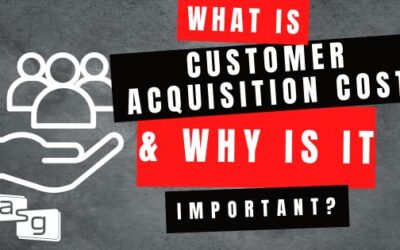There’s a difference between affordability and budget.
To be a good salesperson, sales team, or sales leader you must know the difference.
af-ford-a-bil-i-ty – noun — the state of being cheap enough that people can afford to buy it or pay it
budg.et – noun — an estimate of income and expenditure for a set period of time
Notice, the definitions are not the same, but yet too many salespeople treat them like they are.
It’s not uncommon for a salesperson or even the entire sales organization to accept a customer can’t afford their product or service because a customer or prospect says they don’t have the budget. This is a HUGE mistake because not having the budget is not the same a being able to afford something.
“We don’t have the budget.”
Yes, not having the budget is tough. I get it. When an organization doesn’t have the budget, it makes the sale more difficult. You have to bring your A-game. You have to show tremendous value. Getting a buyer to exceed budget or reallocate budget to buy is legit selling, mastered by but a few truly bad ass salespeople.
Making this happen requires a keen and powerful expression of the value proposition and its impact on the buyer’s organization. Without it, buyers will wait or just not buy. The risk or concern for exceeding the budget does not exceed the value proposition.
Let me say that again.
When a buyer doesn’t have the budget, if you want to get the sale, the solution not only has to provide enough value to be worth the price, it has to provide enough value to be worth the price PLUS exceeding budget or stealing budget from another line item.
“We can’t afford it.”
Affordability, on the other hand, has nothing to do with the budget. Affordability simply means the buyer does or doesn’t have the money. It either exists, or it doesn’t. Affordability doesn’t address a willingness to spend money, or not. Affordability only addresses the availability of money for an organization to pay. When it comes to sales, this is a substantial differentiation.
When an organization can’t afford something, when they say they don’t have the money, move on. The phrase you can’t get blood from a turnip applies. They can’t give what they don’t have.
When an organization doesn’t have the budget, well that’s a very different situation. When an organization says they don’t have the budget, what they are saying is the weren’t planning on spending money at this time, on this type of solution. It doesn’t mean they don’t have it.
When a customer or prospect says they don’t have the budget, that’s not the same as saying they can’t afford it.
When a customer can’t afford it. The sale is over, walk away.
When a customer doesn’t have the budget, the deal just gets more complicated. It’s time to hone in on the value proposition and the impact to the organization. When lack of budget is present, that’s the time to show ROI calculations or address opportunity costs. This is the time to demonstrate that sticking to the budget costs MORE than throwing out the budget. If the return is there, the budget will be found. You just have to work a little harder.
People WILL find “the budget” if the value is there.
Don’t make the mistake of assuming budget and affordability are the same. They’re not. Thinking they’re the same is the sign of a rookie salesperson. Don’t sell like a rookie.
If you or your organization need help knowing when a prospect has a budget or affordability issue, click here to schedule a call with our sales team.




0 Comments